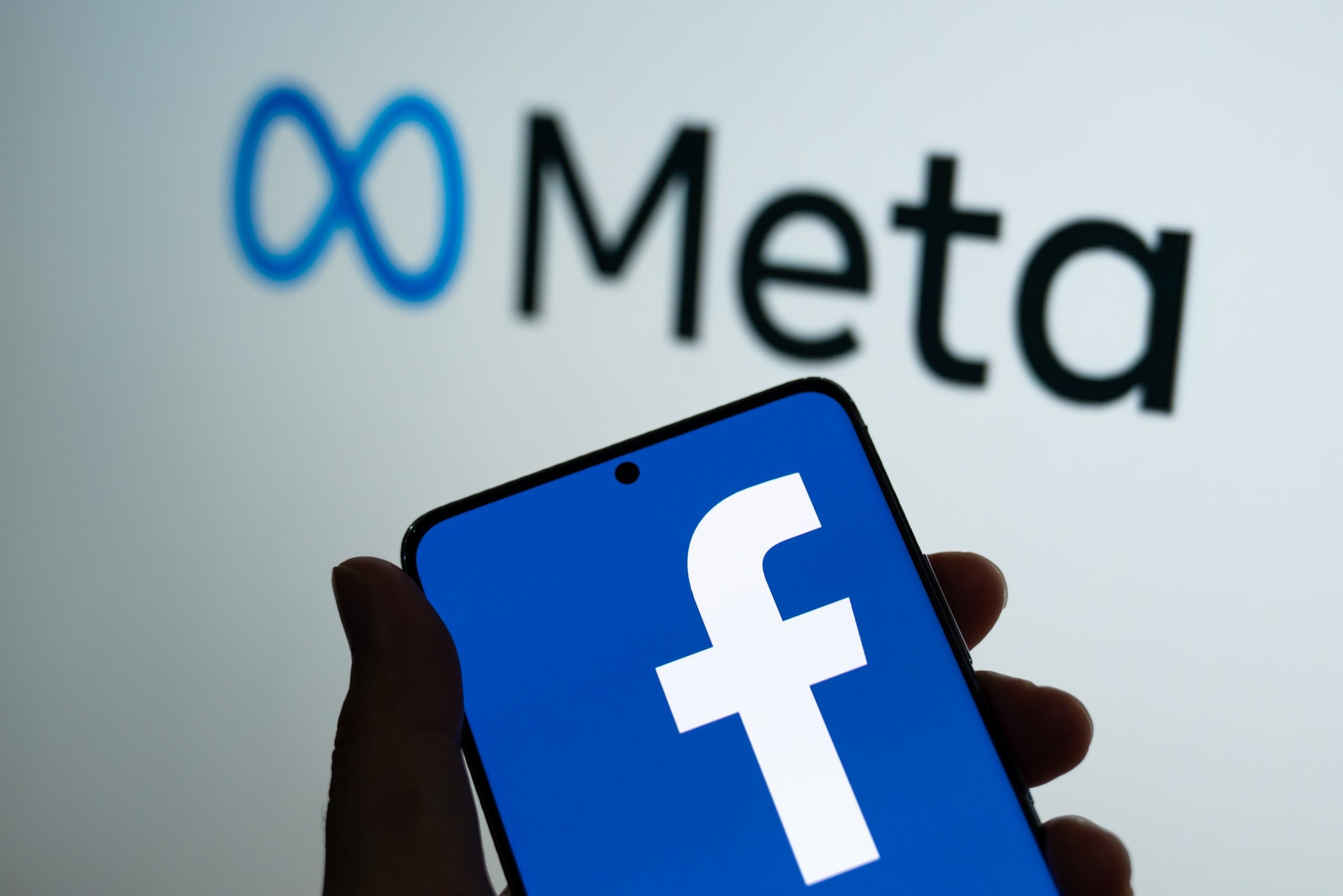3 strategies PR pros can use with the rise of the metaverse
Brands like Meta (formerly Facebook), Gucci, Warner Bros. and more have expanded their physical reach into virtual experiences by using NFT’s, gaming—or even rebranding.

According to Reuters, NFTs (non-fungible tokens) made $2.5 billion in sales so far this year, increasing from $13.7 million dollars in the first quarter of 2020.
An NFT is a collectible digital asset as tracked through blockchain technology and cannot be duplicated. It could be anything with a digital footprint, such as music, gaming, videos and more. PR pros must start explaining how important virtual experiences are to their clients because intangible items are exactly what consumers will buy in our increasingly digital world.
The metaverse is a space where the digital and physical world becomes one, a digital reality where people can work, play and socialize. Although this may sound completely foreign, this is exactly what internet users did during COVID-19 and beyond. Earlier this year, Pew Research discovered that the internet is essential to 90% of Americans, and 40% of them are exploring technology in new ways.
Many consumers used social media, zoom calls, played video games, sent iMessages and used other tools to connect with others, ultimately creating their own communities. We’ve seen many different types of virtual meeting spaces, such as VR chats, companies using Slack or Monday.com to keep their employees organized and even Clubhouse users creating their own groups where people can become members. Everyone has experienced a part of the metaverse because it is an amalgamation of multiple forms of technology into one.
One of the core foundations of public relations is understanding the psychographics, demographics and geographics of the target audiences clients want to reach. As more brands and internet users start to enter the virtual world, PR pros will have more data on the type of consumers who are interested in their client’s products or services.
Here are the three strategies PR pros can take advantage of with the rise of the metaverse:
1. Virtual product placement
Product placement can include gifting a journalist, publication or influencer a product, in the hope they will write an article, or post about it on social media. As brands start to create digital versions of their products and services, PR pros can gift these virtual items—or aid in the development of digital content to increase exposure.
For example, during Paris fashion week Balenciaga debuted a 10-min episode of The Simpsons, where characters wore their brand. The brand used both product placement and virtual characters to tell their story digitally, putting Marge in their golden ballroom dress from their summer 2020 collection. Balenciaga also created garments for the digital game, Fortnite.
Takeaway: Consumers follow trends online just like they follow trends in the physical world. The metaverse is just a mirror of human behavior virtually. Digital product placement will and has increased ROI.
2. Storytelling in product or service descriptions
PR pros are expert storytellers, often using press releases and pitches to help articulate a vision around a brand’s products or services. In the virtual world, PR pros will have to rely on the description of a product to increase the likelihood a consumer will purchase.
Takeaway: Great writing skills are always needed in public relations. PR pros will create the virtual stories for NFTs and the other digital features that brands choose to create for virtual communities.
3. Virtual brand partnerships
The best way to boost client engagement is for brands to collaborate both physically and virtually. As consumers start to create their own virtual avatars, PR pros should encourage their clients to make new digital product—in partnership with other brands or with their consumers—to propel a more inclusive digital experience.
Brands like Clinique have already started by launching a social media campaign competition where entrants can win one of their three brand inspired NFTs based on their most popular products. This brings existing consumers into the virtual space while collaborating with existing users of Clinique’s products. The brand also used hashtags like #MetaOptimist or #Clinique to track engagement across all platforms.
Takeaway: PR pros must find the brands and the consumers that align with their client’s mission, vision and values to reach new potential through cross-promotions, all while discovering new opportunities for brand exposure.
Ketia M. Jeune is a New York City-based public relations pro who worked at Edelman and freelances as a publicist for influencers and multidisciplinary creatives.







We can learn PR not only from the success of others but also, sometimes sadly, from their failures. The coming failure of Facebook, which may endure a loss of billions that PR could have averted, can teach us.
THE PR PROBLEM Facebook and other large companies face is threefold.
.1. Politicians love to look heroic and one way to do this is by attacking the rich “on behalf of” the middle class and poor which together have many times as many votes as the rich.
.2. “Tax the rich” is understandably appealing to millions of voters who are not rich and who can be easily persuaded that the rich “can afford it.”
.3. Rich—VERY rich—Facebook certainly is: over $29 billion revenue for Q3, up 35%. That’s just for one quarter! Net profit for the quarter was $9.2 billion, up 17%. For centuries national leaders when short of money figured “let’s take it from the Jews” since they have plenty, and today’s rich companies may be like the new Jews. It even rhymes: “fair share.”
THE TRUTH is that Facebook is such a huge asset to the public that over two billion people use Facebook every day and for free! Quite a few companies give us good prices but Facebook and Google are actually free! They get all the money they need and then some by selling ads to companies that save by using Facebook and Google instead of older media.
AN ADDITIONAL TRUTH is that Facebook, Google and other large companies like Amazon and Walmart have some of the best PR people who ever lived! It may not be enough. If PR were the Olympics, these PR superstars could be running three-minute miles but for some reason (my guess is that CEOs won’t allow it) the PR superstars are not doing what they know how to do and not getting the company protection that skilled PR could be delivering.
WHAT NEEDS TO BE DONE is to make the voters feel “we LOVE this company!” Those who are loved are rarely attacked by politicians who hope for “higher office” or at least hope to keep their rear ends in the government seats they have now. One way to get love, in this world where people evaluate governing proposals based on an assessment of “how would this affect ME,” could be by launching a massive research program, costing perhaps a billion a year or at least a billion spread over the next five or ten years to reduce school shootings, find a vaccine for cancer or help millions more people understand how to be HAPPIER.
THE BIG BARRIER TO GIVE-AND-YE-SHALL RECEIVE PR may be CEOs and board members influenced by their lawyers who believe that the way to convince the public is by logical argument. It sounds so true! But what may arouse most of us more than logic is LOVE or at least affection. We buy from the companies and vote for the candidate we LIKE. Logical arguments about economics are less fun and less moving than are facts that get us to LIKE a person or a company.
What’s the answer for Facebook and other large companies? I don’t know for sure. Many of the PR people at Facebook and other large companies are far brighter than I am and I did really well at Wharton. But what I DO know is that “tax the rich” proposals may not be defeated by logical arguments nor by the costly and clever little ads Facebook is running. Legislative proposals “to protect the public” by restricting successful companies may get passed though neither protecting the public nor getting hopeful politicians into higher offices.
Yet it’s not over. The struggle for dominance in Washington continues as excitingly as stock market news and football playoff games. The superstars don’t always win yet they may. CEOs often don’t approve Protective PR strategies that could save corporate lives but this could improve.
“What shall I do to be saved?” is the thought of the deeply religious. As that thought gets considered more in top floor corner offices, other Biblical wisdom may be given more of a chance: Give that ye may receive. Trust not just logic but love.